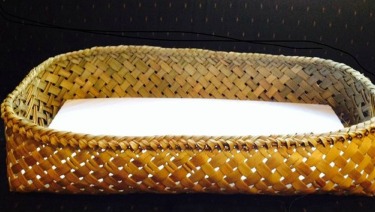Some states now offer free "baby boxes" to parents-to-be who watch online videos about prenatal and infant care―including safe sleep―and take a quiz. The cardboard box, with various versions also available for purchase, contains assorted infant supplies and a small, firm mattress covered in a tightly fitted sheet. But the American Academy of Pediatrics cautions that the popularity of these boxes is growing faster than what's known about their safety and effectiveness.
Baby Box Effectiveness & Safety Unclear:
The idea is that the box can double as an alternative sleeping space for newborns that's in line with the American Academy of Pediatrics (AAP) safe-sleep recommendations. But there's no proof they actually can help keep babies safe at snooze time and reduce infant death rates. In addition, pediatricians are concerned because baby boxes are not required to meet federal safety standards like cribs, bassinets, play yards, and infant carriers are.
Finnish Roots:
Baby boxes (a.k.a. maternity packages) have been given out since 1938 in Finland, where infant deaths dropped over the years to one of the world's lowest rates. But, there's no proof that the boxes themselves help prevent infant deaths. Infant deaths declined in industrialized countries all over the world with improved prenatal care, nutrition, sanitation, immunizations, and antibiotics. Plus, pregnant women in Finland receive baby boxes for getting early prenatal care. Prenatal visits, along with in-home nurse visits for six months after the baby is born, is available to all Finnish mothers through the country's public healthcare system. We know that both prenatal visits and in-home visits by a health professional are associated with lower infant death rates. These factors, along with others, may be part of the reason that more babies survive in Finland.
What About Wahakuras?
 Another alternative sleeping space for newborns has become popular in New Zealand, where baby-size baskets woven from flax are given to out in hopes of improving infant sleep safety. The baskets, called wahakuras, are meant to reduce overheating and suffocation risk when parents share a bed with their infants, a common practice in traditional Maori culture. We still don't know how effective they actually are, but a 2017 study in Pediatrics found that babies slept as safely in them as they did in bassinets. The New Zealand government is examining whether declining Sudden Infant Death Syndrome (SIDS) rates may be related to the programs that provide at-risk families with wahakuras and similar sleep pods made of plastic. However, these same programs also provide safe sleep information and community supports. So, like in Finland, it will be hard to tell exactly what is making a difference—the box itself, or the outreach and education that comes with them.
Another alternative sleeping space for newborns has become popular in New Zealand, where baby-size baskets woven from flax are given to out in hopes of improving infant sleep safety. The baskets, called wahakuras, are meant to reduce overheating and suffocation risk when parents share a bed with their infants, a common practice in traditional Maori culture. We still don't know how effective they actually are, but a 2017 study in Pediatrics found that babies slept as safely in them as they did in bassinets. The New Zealand government is examining whether declining Sudden Infant Death Syndrome (SIDS) rates may be related to the programs that provide at-risk families with wahakuras and similar sleep pods made of plastic. However, these same programs also provide safe sleep information and community supports. So, like in Finland, it will be hard to tell exactly what is making a difference—the box itself, or the outreach and education that comes with them.
Bottom Line:
The AAP believes more research is needed before we can know the possible benefits or dangers of using baby boxes and wahakuras. Talk with your pediatrician if you have any questions about safe sleep.
Additional Information & Resources: